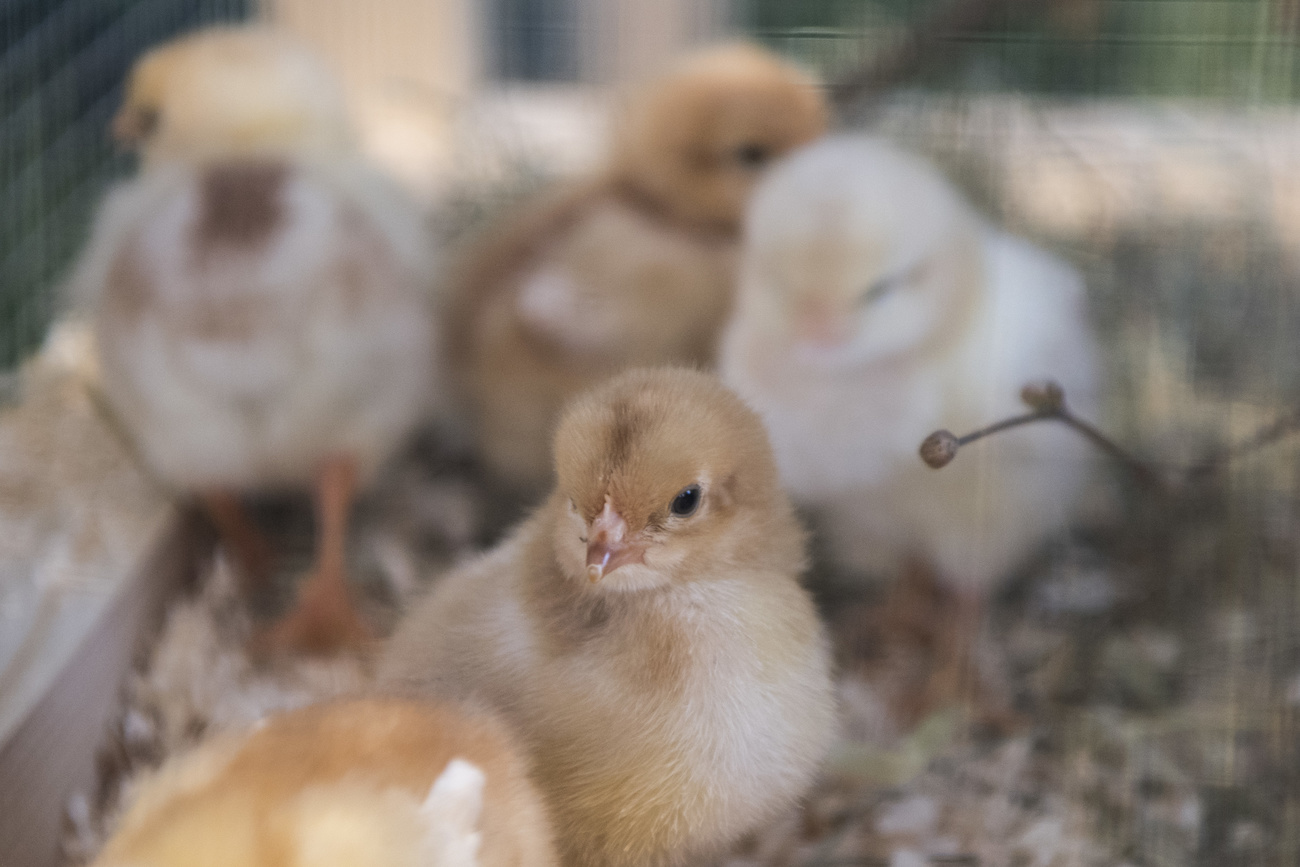
‘Last-resort’ antibiotics used widely to treat Swiss chickens

Millions of chickens on Swiss farms are treated with the types of antibiotics which, in human cases, are only used in exceptional cases.
Some 5.2 million chickens were treated with ‘last-resort’ antibiotics in 2020 alone, write the SonntagsZeitung and Le Matin Dimanche newspapers.
The medicines, which are only used in humans when no other treatment has had an effect, are also supposed to be prescribed only exceptionally in animals, since overuse could lead to new forms of antibacterial resistance.
Their usage in previous years is meanwhile difficult to estimate, write the newspapers, since veterinarians who prescribe the medicines to farmers have only been obliged to report such cases since October 2019.
High level of resistance
Common drugs prescribed on Swiss farms reportedly include Fluoroquinolones, which in human cases are used to treat urinary infections. However, according to the Federal Food Safety and Veterinary Office, Swiss chicken flocks display a “high level” of resistance to this class of antibiotics.
To avoid the possible transmission of multidrug-resistant organisms from chickens to humans, infectious disease specialist Andreas Widmer recommends to “cook your chicken thoroughly”.
The newspapers also write that while such antibiotics are used on other types of farm animals, too, it is to a lesser extent: 59% of chickens are concerned, but the rate falls to 10% for cattle and pigs.

More
Swiss worry more about antibiotic resistance and cancer than Covid-19

In compliance with the JTI standards
More: SWI swissinfo.ch certified by the Journalism Trust Initiative
















![The four-metre-long painting "Sonntag der Bergbauern" [Sunday of the Mountain Farmers, 1923-24/26] had to be removed by a crane from the German Chancellery in Berlin for the exhibition in Bern.](https://www.swissinfo.ch/content/wp-content/uploads/sites/13/2025/12/01_Pressebild_KirchnerxKirchner.jpg?ver=cb688ed5)














You can find an overview of ongoing debates with our journalists here . Please join us!
If you want to start a conversation about a topic raised in this article or want to report factual errors, email us at english@swissinfo.ch.